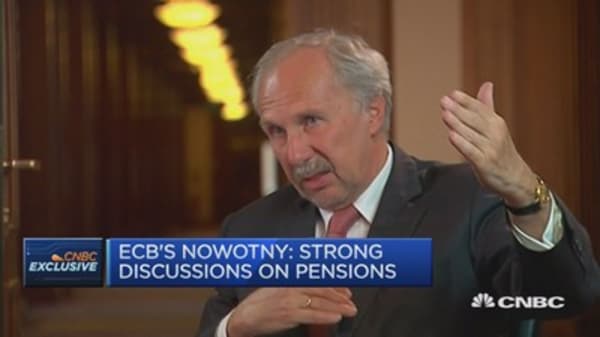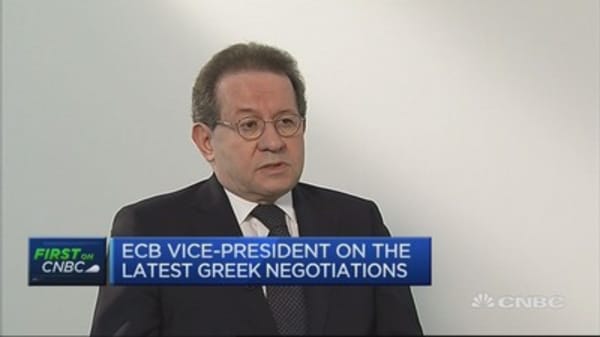At first look, there seems to be plenty of reason for the ECB to maintain its "steady-as-she-goes" approach: the euro zone's economy outperformed U.S. growth in the first quarter, financial fragmentation is easing and money supply growth continued to rise in April.
However, one key concern is the recent stabilisation in lending rather than a pick-up -- but don't let distract you from likely oil-related tinkering with inflation and growth forecasts.
Read MoreEuro zone Q1 GDP outpaces US
According to a note from Societe Generale's global economics team Friday: While first-quarter gross domestic product growth beat expectations, and growth overall is expected hit around 1.5 percent this year, some survey indicators point to downside risks in the next three months.
With all that in mind, watch out for an upward revision to headline inflation when ECB President Mario Draghi speaks to the press after the rate-setting meeting, though the more crucial core inflation should remain unchanged.





